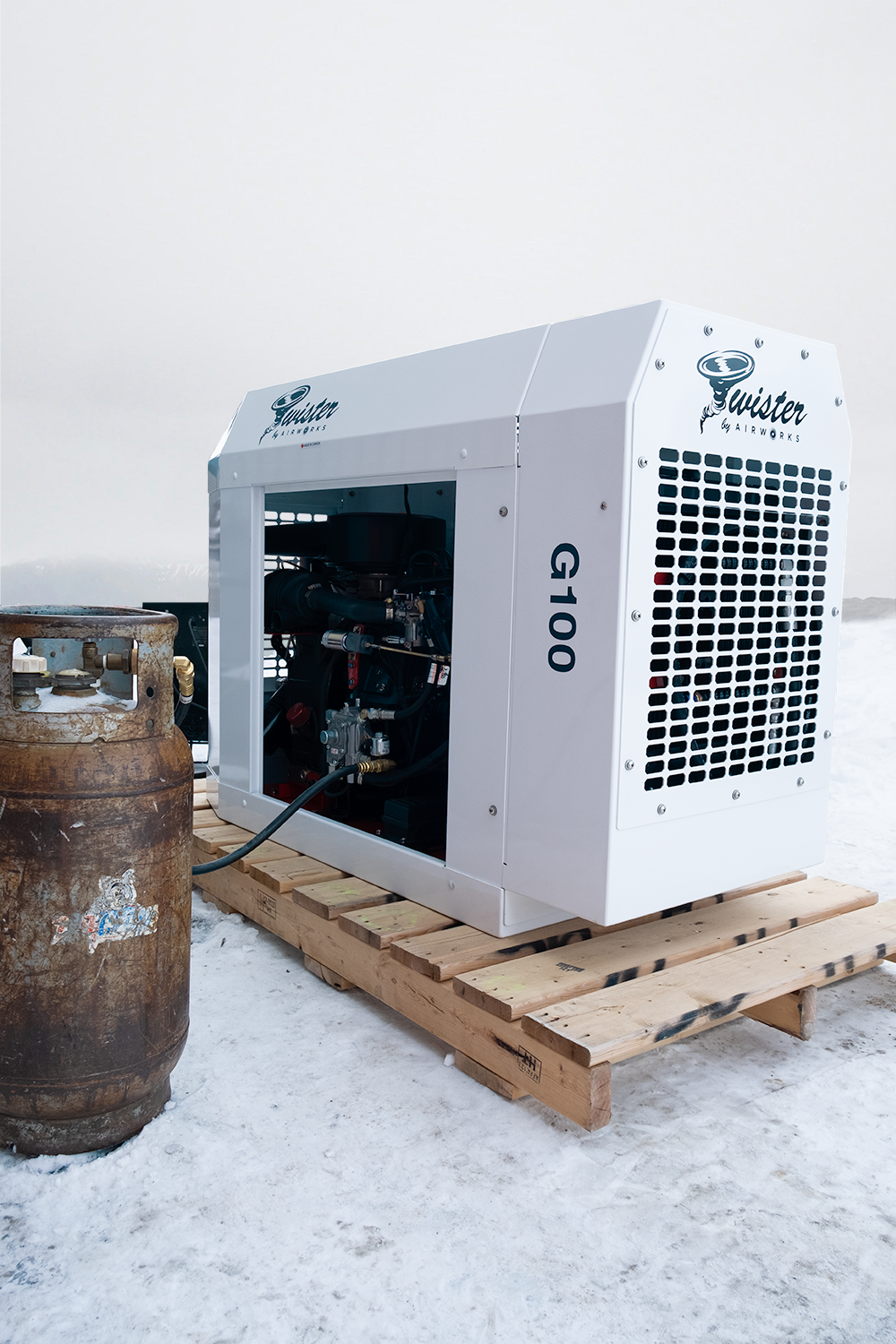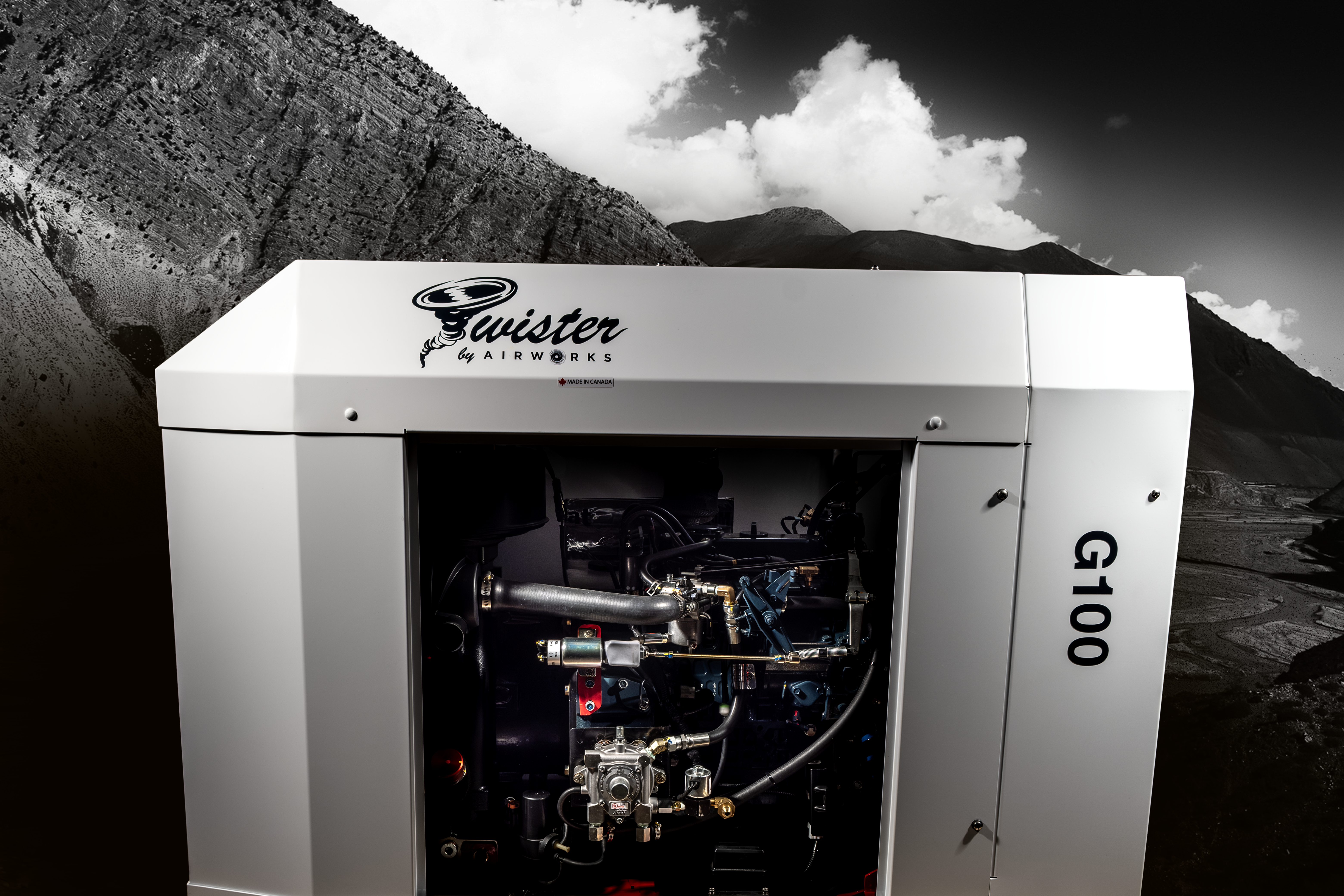Introducing: The Twister G100
The World's First Propane-Powered Air Compressor.
The G100 is available in two versions, the G100 Propane, and the G100 Natural Gas (which is also able to operate off of gasoline directly). The propane variant is, in fact, the world's first propane-powered air compressor, while the natural gas variant is an exceptionally rare offering in the world of heavy equipment.
Specifications
CFM: Rated for 100 CFM @ 100 PSI, with a max PSI of 110 for either variant
Fuel type: Can be configured for either liquid propane (G100 Propane), or natural gas/gasoline (G100 Natural Gas).
Duty Cycle: 100%
Dimensions & Weight: 55" x 23" x 40" | 880lbs
Noise level: 72 dB @ 3m
Why Propane?
Portability and Versatility: Propane-powered air compressors are not reliant on electrical power, making them ideal for remote or off-grid locations where electricity might not be readily available. They are also convenient for mobile operations, such as construction sites or agricultural settings, where the need to move equipment frequently is common.
Fuel Availability and Storage: Propane is widely available and can be easily stored in portable tanks. This makes it a convenient fuel choice, especially in areas where other fuel sources might be scarce or difficult to transport.
Operational in Diverse Conditions: Propane-powered equipment can operate efficiently in various weather conditions, including cold environments where diesel or gasoline engines might struggle. Propane has a lower freezing point, ensuring reliable performance in colder temperatures.
Lower Emissions: Compared to gasoline and diesel engines, propane engines produce fewer emissions, which can be beneficial for both the environment and compliance with local regulations regarding air quality and emissions standards.
Cost-Effectiveness: Propane is often less expensive than gasoline or diesel. Additionally, propane engines typically require less maintenance and have a longer lifespan due to cleaner combustion, which can result in lower long-term operational costs.
Safety: Propane is a relatively safe fuel. It is non-toxic and poses a lower risk of contamination to soil and groundwater compared to gasoline or diesel spills. Moreover, propane tanks are designed to be robust and resistant to punctures.
Performance: Propane engines can deliver comparable power and efficiency to their gasoline and diesel counterparts. This makes propane-powered air compressors suitable for a wide range of tasks, from light-duty to heavy-duty applications.
Propane vs. Diesel/Gas Comparison
Feature | Propane | Gasoline | Diesel |
Emissions | ✅ Low | ❌ High | ❌ Moderate |
Storage | ✅ Safe, long-term | ⚠️ Degrades | ⚠️ Can gel in cold |
Noise | ✅ Quieter | ❌ Loud | ❌ Louder |
Indoor Use (ventilated) | ✅ Possible | ❌ No | ❌ No |
Simple Maintenance
Like every Twister, the G100 has been designed and developed by people who use and service air compressors, and understand the common pain points that come with maintaining other equipment from other manufacturers. The G100's internal diagrams and complete service schedule is available here.
How Can I Add Propane-Powered Air Compression To My Business?
The G100 is currently available through our extensive global dealer network, get in touch with one of them today to place your order.

